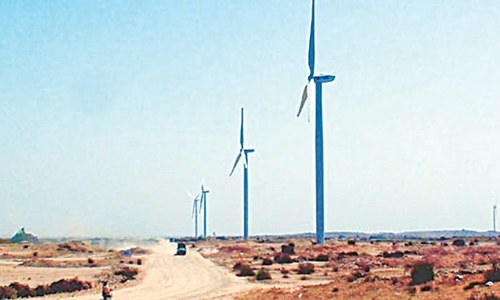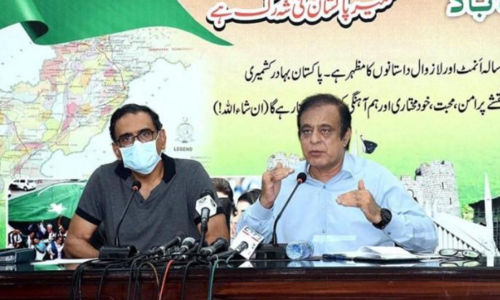ISLAMABAD: Serious differences have cropped up among the independent power producers (IPPs) after signing of their memorandums of understanding (MOUs) with a negotiation committee of the government for tariff reduction.
Two large groups of IPPs have fallen out with each other amid mutual mistrust, and the head of the IPP Advisory Committee (IPPAC) — Khalid Mansour — who had headed the talks from the power producers side, has resigned.
Read: IPP ‘agreement’
“I have been informed that four member companies (namely Nishat Power Ltd, Nishat Chunian Power Ltd, Liberty Power and Attock Gen Ltd) have written a letter to the Committee for Negotiations with IPPs, set up by the Federal Government, raising objections to my being nominated to a committee being set up to resolve power sector issues” he wrote in his resignation letter to the IPPAC, dated July 28, 2020.
“Whilst I have not seen the letter myself, I have been informed that content alleges that the IPPs do not believe that I represent nor protect their interests.”
The MOU reached between the IPPAC and the government negotiating committee had agreed to reductions in the returns to be given to the IPP sponsors, as well as removal of dollar indexation for these returns. It was hailed by the government as one of its signature achievements at the time.
“If now the members feel that I have not acted in their best interests at any time during this entire process, I hereby tender my resignation” Mansour said in his letter, adding that he believes his “personal and professional integrity are above reproach”.
A senior source from among the other group of companies named in Mansour’s letter had a different take though. “He was toeing his own line” he tells Dawn, referring to Mansour and his stewardship of the talks. “He had created a subsidiary and all the profits of his company were being transferred there, whereas others were not doing this and as a result some enterprises showed higher profits than others.”
The net result of these practices of concealing profits, the source said, was that some IPPs were shown with very large “excess profit” amounts of Rs14 to Rs17 billion, whereas others were shown with nil profits. When asked why his company agreed to sign the MoU if they had reservations about the referral of the accounts back to Nepra for probe on whether or not “excess profits” had been earned, the source only said “we were under tremendous pressure at that time”.
Each of the companies have now peeled themselves away from the IPPAC and plans to continue the process of implementing the terms of the MoU individually with the government. “The IPPAC is more or less dead now” the senior executive from one of the disgruntled IPPs said.
Khalid Mansour, when reached by Dawn, said the whole episode was the result of a misunderstanding. “They thought I was going to be included in the implementation committee that the government is putting together for larger power sector transformation, and objected to that” he said. He added that he has not yet been included in any such committee.
The MoU between the government and the IPPs had two key clauses. One called for reduction of the rate of return, and the other referred the question of ‘excess profits’ back to the power sector regulator, Nepra, which would probe the accounts of the companies to determine whether or not any profits beyond what was allowed by the tariff had been earned by these companies. It is this clause on which the process of finalizing the MoU into an agreement has hit rocky waters.
Published in Dawn, September 2nd, 2020















































